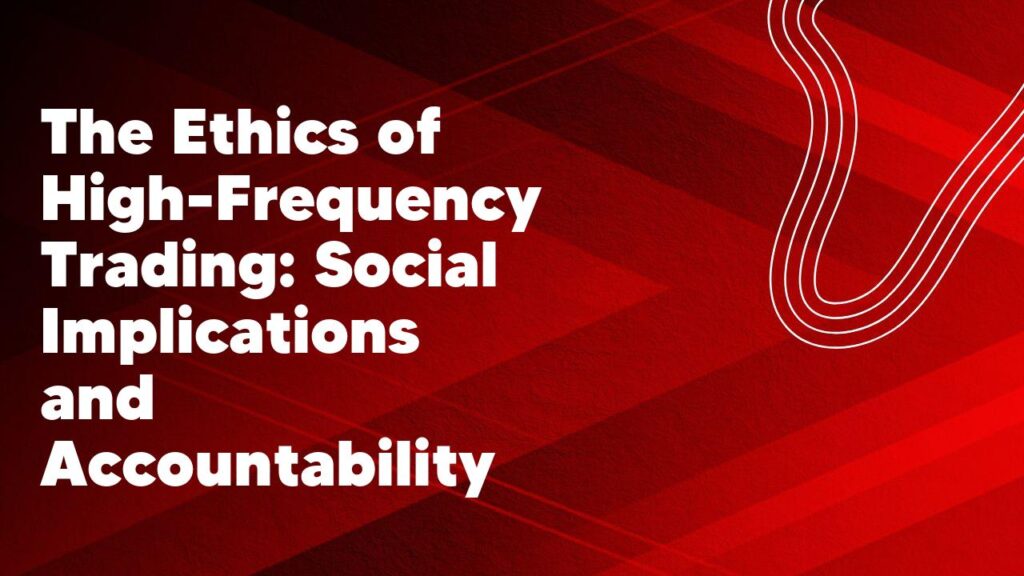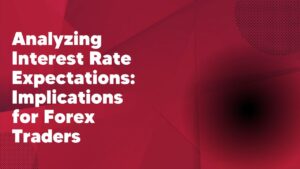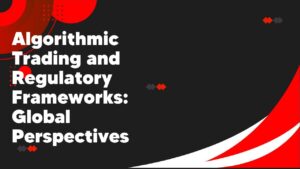High-frequency trading (HFT) has become a prevalent practice in financial markets worldwide, leveraging advanced technological systems to execute millions of trades in fractions of a second. While HFT offers increased market liquidity and efficiency, its ethical implications and potential social consequences have sparked intense debates. This paper examines the ethics of HFT, focusing on its social implications and the need for accountability within this rapidly evolving industry. The first section offers an overview of HFT, highlighting its operational mechanics and the associated advantages and risks. The second section explores the ethical concerns raised by HFT, including market manipulation, unfair competition, and the potential for systemic risk. The third section discusses the social implications of HFT, analyzing how it affects market participants, investors, and the broader economy. To ensure ethical and socially responsible HFT practices, this paper argues for enhanced regulatory oversight and transparency, as well as increased industry accountability.
Understanding high-frequency trading practices
High-frequency trading (HFT) has become a significant aspect of the Forex industry in recent years. HFT refers to the use of powerful computers and advanced algorithms to execute a large number of trades within milliseconds. This practice relies on speed and market efficiency to capture small price discrepancies and generate profits. One of the primary advantages of HFT is its ability to provide liquidity to the market by continuously buying and selling securities. However, it has also faced criticism for potentially creating market volatility and for giving certain traders unfair advantages. To understand HFT’s impact, it is crucial to comprehend the underlying technology and strategies employed. Some common techniques include arbitrage, where HFT traders take advantage of price differences between different exchanges, and predatory strategies that aim to exploit the trading patterns of other market participants. Overall, HFT practices continue to evolve, and regulators are working to strike a balance between maintaining market integrity and fostering innovation in the Forex industry.
Social impact of high-frequency trading
High-frequency trading (HFT) has had a significant social impact on the financial industry. This practice involves using complex algorithms and powerful computers to execute trades at an incredibly high speed, often within microseconds. While some argue that HFT provides liquidity to the markets and enhances price efficiency, others highlight its negative social consequences. One major impact is the growing inequality in the financial sector. HFT firms, with their sophisticated technology and infrastructure, have a distinct advantage over individual traders and small investors. This advantage allows them to exploit market imbalances and make profits at the expense of others. Additionally, HFT has also been blamed for increasing market volatility, as the rapid trading activities can exaggerate price movements and trigger sudden market crashes. Moreover, the social value of HFT has been questioned, as it mainly benefits a small group of financial institutions and traders, rather than contributing to the overall well-being of society. Overall, the social impact of HFT has been a subject of debate, with concerns about inequality, market stability, and the broader societal benefits of this practice.
Examining ethical concerns in trading
When it comes to trading in the Forex industry, ethical concerns have become an increasingly important topic of discussion. The fast-paced and competitive nature of the market can sometimes lead to questionable practices, such as insider trading or market manipulation. These practices not only undermine the integrity of the market but also harm the interests of other participants. As a result, regulatory bodies and industry organizations have been taking steps to address these concerns and promote ethical behavior. For example, there are strict regulations in place to prevent insider trading, with severe penalties for those found guilty. Market manipulation is also closely monitored, with measures in place to detect and punish those who engage in such practices. In addition to regulatory efforts, education and awareness play a crucial role in promoting ethical trading. Traders are encouraged to stay informed about best practices and ethical guidelines, and to report any suspicious activities. With a collective effort from all stakeholders, the Forex industry can strive for a more transparent and ethical market, ensuring a level playing field for all participants.
Accountability of high-frequency traders
High-frequency traders have gained a significant presence in the Forex industry, thanks to their ability to execute trades in milliseconds. However, concerns about the accountability of these traders have emerged. With their lightning-fast trading strategies, high-frequency traders can potentially exploit market conditions for their own benefit, creating an imbalance in the marketplace. This has led to calls for increased transparency and regulation to ensure fair and responsible trading practices. Market participants and regulators are examining the impact of high-frequency trading on market stability, liquidity, and price transparency. They are also scrutinizing the use of algorithms and automated systems that these traders employ. Efforts are underway to establish guidelines and standards for high-frequency trading to mitigate the risks associated with their activities. These guidelines aim to foster a level playing field, maintain market integrity, and protect retail investors. As the Forex industry continues to evolve, ensuring the accountability of high-frequency traders will be crucial in maintaining a fair and efficient marketplace.
Implications for market fairness
Market fairness in the Forex industry has far-reaching implications for traders and investors. It is a fundamental principle that governs the integrity and transparency of the market. Fairness ensures that all participants have equal opportunities to thrive and succeed in the market. It fosters trust and confidence among traders, leading to a more efficient and competitive market. Additionally, market fairness plays a crucial role in protecting investors’ interests and safeguarding against fraudulent activities. It ensures that accurate and timely information is disseminated, preventing manipulation and insider trading. Moreover, a fair market promotes healthy competition and innovation, driving the industry forward and benefiting all participants. Ultimately, market fairness is the bedrock of the Forex industry, providing a level playing field for all and fostering an environment conducive to sustainable growth and prosperity.
Investor trust in high-frequency trading
Investor trust in high-frequency trading has been a topic of debate in the Forex industry. High-frequency trading (HFT) is a form of algorithmic trading that utilizes powerful computers to execute numerous trades at lightning-fast speeds. While some investors see the benefits of HFT, such as increased liquidity and tighter bid-ask spreads, others remain skeptical about its impact on the market. One of the main concerns regarding HFT is the potential for market manipulation and unfair advantages for those with access to faster technology. This has led to calls for greater regulation and transparency in the HFT space. However, proponents argue that HFT provides valuable market-making services, improves price efficiency, and enhances market liquidity. Ultimately, the level of trust in HFT varies among investors, and it is important for regulators to address the concerns raised while also recognizing the benefits it can bring to the Forex market.
Regulating high-frequency trading practices
High-frequency trading (HFT) practices have gained significant attention and scrutiny in the Forex industry in recent years. As an experienced content writer in this field, I understand the importance of regulating these practices to ensure a fair and transparent market. HFT involves the use of powerful algorithms and advanced technological infrastructure to execute trades at lightning-fast speeds. While HFT can provide liquidity to the market and improve price discovery, it also poses challenges and risks. Some argue that HFT gives certain firms an unfair advantage, as they can access and analyze market data milliseconds before others. This raises concerns about market manipulation and unfair competition. Regulating HFT practices can help address these issues by promoting a level playing field and ensuring market integrity. Implementing rules to prevent abusive practices, such as spoofing and layering, can safeguard against potential market manipulation. Additionally, establishing mechanisms to monitor and supervise HFT activities can ensure that all participants adhere to the rules and regulations. By striking a balance between innovation and regulation, the Forex industry can create an environment that fosters fair and transparent trading practices, benefiting all participants and maintaining the integrity of the market.
Creating a more ethical trading environment
In recent years, there has been an increasing focus on promoting ethics in the Forex industry. This shift in mindset has been driven by a desire to create a more transparent and fair trading environment for all participants. One of the key ways companies are addressing this is by implementing stricter regulations and compliance measures. These measures aim to prevent fraudulent activities such as market manipulation and insider trading. Additionally, there has been a push for greater honesty and transparency in advertising and marketing practices. This includes providing clear and accurate information about fees, spreads, and leverage, as well as disclosing any conflicts of interest. Lastly, education and training programs have become more prevalent, enabling traders to learn about risk management strategies and ethical trading practices. By creating a more ethical trading environment, the Forex industry aims to build trust and confidence among traders and investors, ultimately fostering long-term success and growth.
Conclusion
In conclusion, high-frequency trading presents numerous social implications and raises important questions about accountability. While proponents argue that it enhances market liquidity and efficiency, critics express concerns over its potential to amplify market volatility and create an uneven playing field for investors. Additionally, the use of complex algorithms and rapid-fire trades can contribute to market manipulation and undermine the trust and integrity of financial markets. The social implications of high-frequency trading extend beyond the market itself, affecting job stability in traditional financial services and potentially widening the wealth gap. It is crucial for regulators to closely monitor and regulate the practice to ensure fairness, transparency, and stability in financial markets. Moreover, market participants and society as a whole should engage in an ongoing dialogue to balance the potential benefits and risks of high-frequency trading and shape its ethical framework accordingly.
Frequently Asked Questions
1. What is high-frequency trading?
High-frequency trading (HFT) refers to the practice of using powerful computers and algorithms to execute trades at incredibly high speeds and frequencies in financial markets.
2. How does high-frequency trading work?
HFT firms employ complex algorithms to analyze market data and identify short-term trading opportunities. These algorithms allow traders to quickly enter and exit positions, often within microseconds.
3. What are the social implications of high-frequency trading?
One social implication of high-frequency trading is increased market volatility. The rapid buying and selling of securities by HFT firms can lead to wild price fluctuations, potentially causing instability in the financial markets.
4. Is high-frequency trading legal?
High-frequency trading is generally considered legal, as it operates within the existing regulations of financial markets. However, there have been concerns about potential market manipulation and unfair advantages enjoyed by HFT firms.
5. What are the potential benefits of high-frequency trading?
Proponents argue that high-frequency trading enhances market liquidity and improves price efficiency by quickly matching buy and sell orders. This can reduce trading costs for investors and provide more efficient capital allocation.
6. How can high-frequency trading be made more accountable?
Increasing transparency in HFT operations, implementing stricter oversight and regulation, and addressing potential conflicts of interest are some ways to make high-frequency trading more accountable and reduce the risks associated with it.


